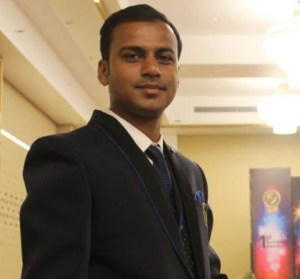Terra, a Korean watchdog, is starting to analyze the risks of cryptocurrency. 2.0 wins a majority vote.
At Market.us News, we strive to bring you the most accurate and up-to-date information by utilizing a variety of resources, including paid and free sources, primary research, and phone interviews. Our data is available to the public free of charge, and we encourage you to use it to inform your personal or business decisions. If you choose to republish our data on your own website, we simply ask that you provide a proper citation or link back to the respective page on Market.us News. We appreciate your support and look forward to continuing to provide valuable insights for our audience.
Although the FSS regularisation power is still in its initial stages, it is expected that if a legal framework for virtual properties is developed, an assessment system can be implemented.
The FSS has stated that it has the authority to regulate the evaluation of virtual asset threats.
A native news story stated that it is challenging to defend investors at the moment because of the multiple ways risk is assessed for every virtual asset transaction. Although the FSS’s attempts to standardize virtual assets are still in the early stages, it is expected that once a legal structure is in place, a consistent evaluation mechanism will be available for all transactions.
Do Kwon has linked five transactions to relist once LUNA2 becomes live, according to Heraldcorp. Several other South Korean platforms are keeping their distance from LUNA, which is currently being investigated following a failure. The exception is Upbit.
Terra Network Restoration by CEO Kwon The idea is to make fresh coins for stockholders who have suffered losses. “Let’s name the Terra blockchain network “Terra Classic” and the existing Luna blockchain “Luna Classic,” and build a Terra blockchain,” Kwon tweeted on May 18.
According to the proposal, Terra 2.0 was set to launch on the mainnet on Friday. After the launch, LUNA 2.0 coins can be traded. Existing network stakeholders will receive a predetermined percentage of new tokens. A vesting time will apply to the majority of coins.
The Terra blockchain redesign and the introduction of LUNA 2.0 tokens were approved by voters. This would enable the establishment of a new blockchain that will distribute tokens proportionally to individuals who have been harmed by the abrupt collapse of the UST algorithmic stabilitycoin.
The $40 million Terra breakdown has sparked fierce debate in the Korean and international crypto communities. Do Kwon, co-founder of Terraform Labs, was summoned by the National Assembly’s Political Affairs Committee for a hearing on the topic.

Tajammul Pangarkar
Tajammul Pangarkar is a tech blogger that frequently contributes to numerous industry-specific magazines and forums. Tajammul longstanding experience in the fields of mobile technology and industry research is often reflected in his insightful body of work. His interest lies in understanding tech trends, dissecting mobile applications, and in raising a general awareness of technical know-how. When he’s not ruminating about various happenings in the tech world, he can be usually found indulging in his next favorite interest - table tennis.
Latest from Author
- Breakfast Cereals Offers a Quick and Easy Option for Individuals with Busy Lifestyles
- Breakfast Cereal Statistics 2024 By Diet, Nutrition, Health
- Top 10 Apparel Companies | Fashion Insights Explained
- Food Security is Important to Resilient Food Systems to Strengthen Measures
- Food Security Statistics 2024 By Testing, Index, Stability